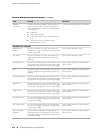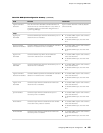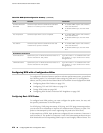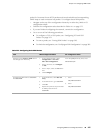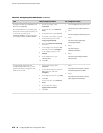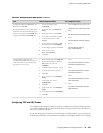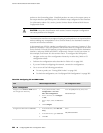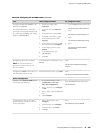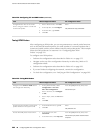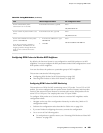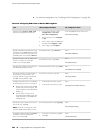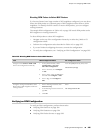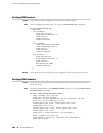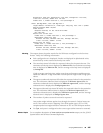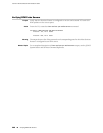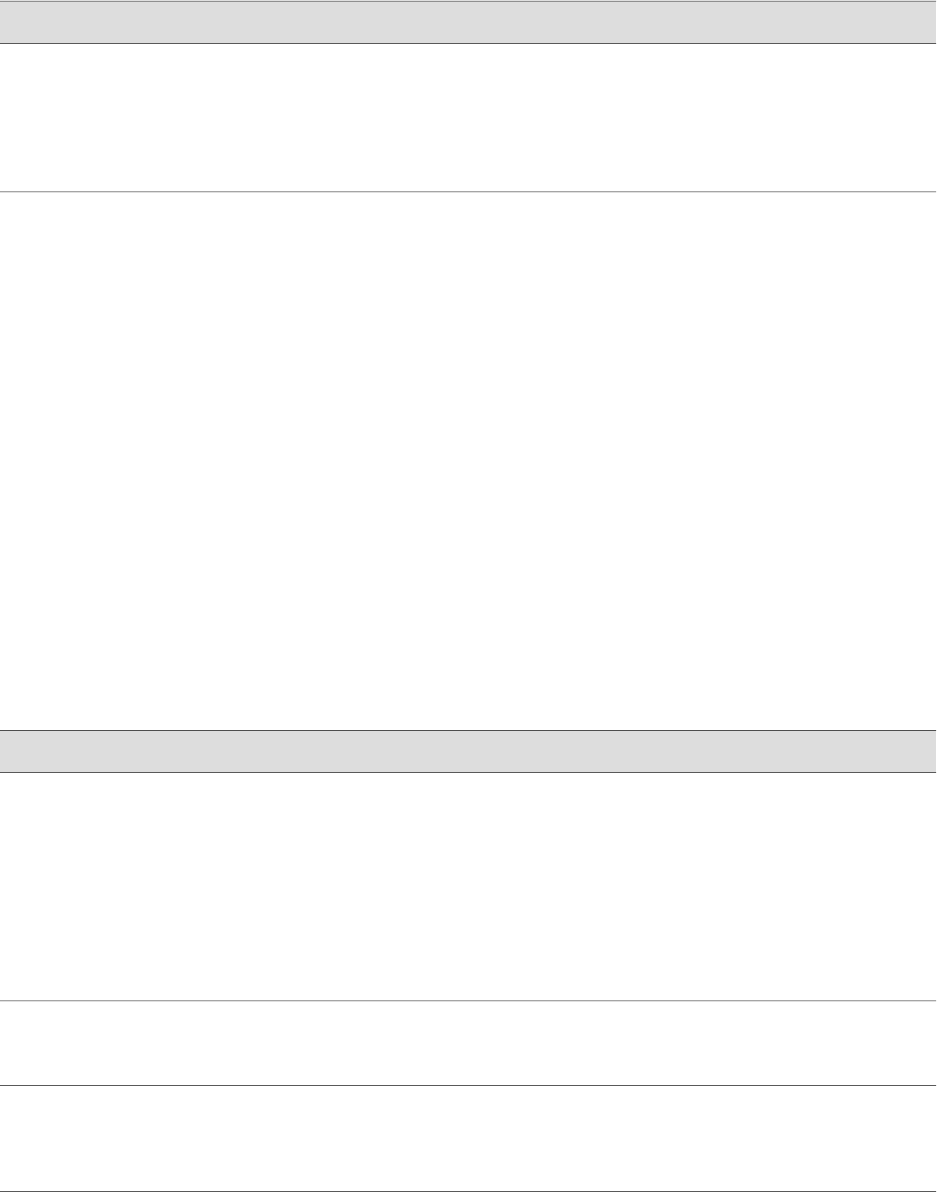
Table 142: Configuring TCP and UDP Probes (continued)
CLI Configuration EditorJ-Web Configuration EditorTask
Enter
set probe-server udp port 50037
1.
Next to Probe server, click Edit.
2.
In the Udp box, click Configure.
3.
In the Port box, type 50037.
4.
Click OK.
Configure Router B to act as a UDP
server, using port 50037 to send and
receive UDP probes.
Tuning RPM Probes
After configuring an RPM probe, you can set parameters to control probe functions,
such as the interval between probes, the total number of concurrent probes that a
system can handle, and the source address used for each probe packet. This example
tunes the ICMP probe set for customer A in “Configuring Basic RPM
Probes” on page 276.
To configure tune RPM probes:
1. Perform the configuration tasks described in Table 141 on page 277.
2. Navigate to the top of the configuration hierarchy in either the J-Web or CLI
configuration editor.
3. Perform the configuration tasks described in Table 143 on page 282.
4. If you are finished configuring the network, commit the configuration.
5. To check the configuration, see “Verifying an RPM Configuration” on page 285.
Table 143: Tuning RPM Probes
CLI Configuration EditorJ-Web Configuration EditorTask
From the [edit] hierarchy level, enter
edit services rpm
1.
In the J-Web interface, select
Configuration>View and
Edit>Edit Configuration.
2.
Next to Services, click Configure
or Edit.
3.
Next to Rpm, select the Yes check
box.
4.
Click Edit.
Navigate to the Services>RPM level in
the configuration hierarchy.
Enter
set probe-limit 10
1.
In the Probe limit box, type 10.
2.
Click OK.
Set the maximum number of concurrent
probes allowed on the system to 10.
From the [edit] hierarchy level, enter
edit services rpm probe customerA test
icmp-test
1.
In the Owner box, click
CustomerA.
2.
In the Name box, click icmp-test.
Access the ICMP probe of customer A.
282 ■ Configuring RPM with a Configuration Editor
J-series™ Services Router Administration Guide



